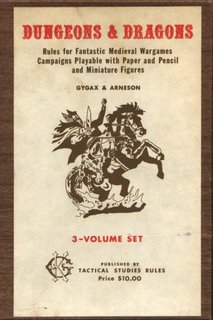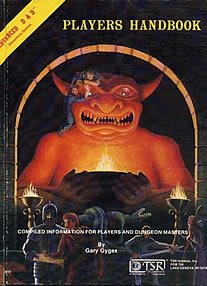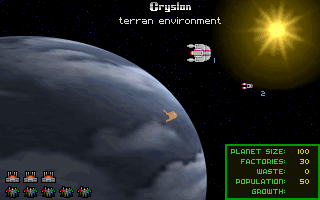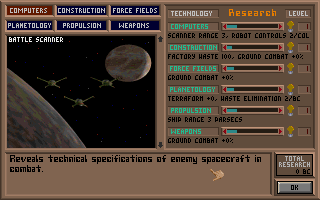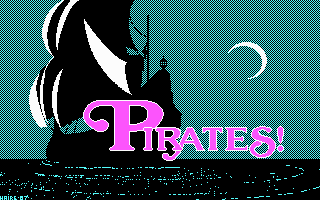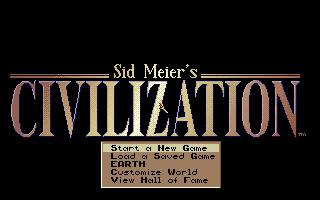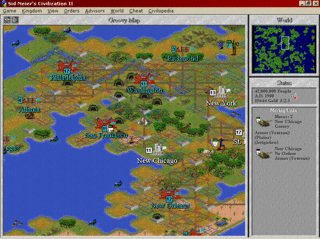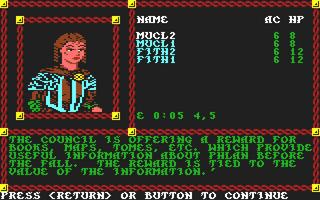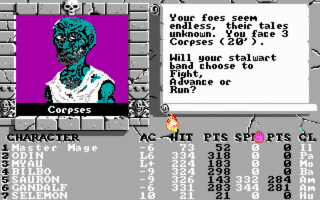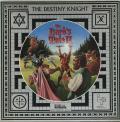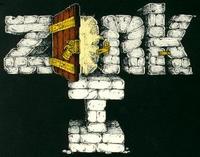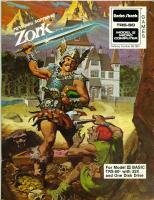Eve Online “The Experience”
This blog, since I started it oh so long ago, was intendent to be a series of articles about the entire scope of gaming but has instead been predominantly about a nostalgic look at gaming and the gaming industry, something of a personal hobby for me. I have done very little with this blog about what is going on today in gaming. I know for certain it’s primarily because it’s quite an intimidating task, the gaming industry has grown so much and changed so quickly in the last ten years that its practically impossible to have your thumb on its pulse and anyone claiming such a thing would have many irate critics. Suffices to say I’m going to take a small stab into this arena anyway with a little game I discovered called Eve Online. A massive multiplayer online game in a unique sci-fi setting with poor initial reviews, a long tough road to success always on the brink of self destruction but most importantly a game so revolutionary and so ahead of its time its as if it gives you a peek into the future of were hopefully the gaming industry as a whole is going.
I discovered Eve when it was already two years old and had gone through the very expected and traditionally tough growth period of all massive multiplayer online games (MMOG’s), unlike most MMOG’s however it did not start with a successful boom in fact it was more of a deflated huh? The reviews barely breaking the 60% mark with most gaming magazines describing the game as effectively boring and decisively over complicated stood on the brink of failure before it ever even had a chance. It would seem that most gamers agreed with the analysis as the population of the game at that time was at about 3,000 users.
Gamespot, a reviewer I have come to trust and know to agree with my personal tastes on most accounts gave this game a 6.6 out of 10 calling it slow paced and not recommendable. I read several reviews on Eve, paying particular attention to the gamespot review several times to try to get a feel for what they missed and as it turns out they didn’t miss anything, they just simply didn’t stick around long enough to understand what the game is really about and where it was going. Gamespot’s review of Eve like the reviews of most MMO’s showcased the typically short attention span most game reviewers have when it comes to reviewing larger and more complex games. The gamespot review although detailed outlining gameplay very well and still accurate today, captures only the activities of a player in the first few weeks, effectively it’s like a complete newbie reviewing the game who has experienced only a fraction of the game, the less important and far less exciting fraction. Calling it slow paced is accurate, Eve most certainly requires a bit of patience and dedication, but so do most MMO’s, it’s just a part of the genre. Eve’s slowness unlike most MMO’s however is the result CCP’s very tactical strategy to introduce elements of the game to the player a little at a time and assist them in the accepting and joining the overbearing and emotionally charged gaming experience Eve really is without overwhelming them. If you play for a couple of months you’ll find that the pace picks up and never returns to its slower beginnings.The truth about Eve Online is that it has so many layers it may in fact take you well over two months to really discover the nuts and bolts of the game and perhaps even longer to actually see what many Eve players have discovered to be a truly unique gaming experience.
In my eyes CCP the makers of Eve Online have done for gaming effectively what independent film makers have done for the movie industry. They have taken a revolutionary step forward in the genre of MMOG’s to give us a type of experience that not only entertains us but involves us in the unfiltered no holds bar human experience that only interactive play at this level could provide. Eve Online is far more then a 60 dollar purchase on a quick entertainment fix, and certainly offers much more then an online game. It’s the Reservoir dogs of gaming, a brutal and uncensored peek into human interaction that will get you personally involved perhaps even against your will in a way no game ever has, if of course you are ready to have a game take you to such a depth, certainly many gamers look for a far lighter experience. More importantly however is the fact that CCP understands that Eve Online is not a product to be simply packaged and sold, but a media platform, for which they have shown tremendous support going as far as having a 24 hour a day radio shows dedicated to the game, a fully realized professional magazine and unprecedented support for the community ranging from major Eve Online conventions to in game browsers to allow you to access Eve content from inside the game. Far bigger things are on the horizon like cell phone linking into the game and a rumored web based application that would allow you to log in from any PC using a browser and manipulate aspects of the game.
Like all games its certainly not without its troubles. Bugs and a relatively weak customer service center with a fairly absent system for teaching players to actually play the game can and does turn people off long before they ever get to experience the depths of the game. The forum discussions certainly reflect this but if you spend any time at all reading through the post you’ll find the true complaints have more to do with in game events that have taken place for which CCP has no compassion for, then anything else. Many new players that join the world of Eve find it a very brutal place and as they post their complaints on the forums with only a partial understanding of the games subtleties it becomes evident that they feel somehow cheated out of an expected entertainment. Veteran players have a tendency to take advantage of younger less experienced players and although unfortunate this condition of the game actually serves its purpose as a teaching aid, the greatest of all the teaching aids in fact, experience. Among the biggest debates on the forums and in game is the argument between the so called “Carebears” and “PvPers”, a debate that continues to rage endlessly about how Eve Online’s very rough and seemingly uncompassionate approach to PvP is unfair to inexperienced players or players who do not wish to participate in PvP combat. To that CCP has very cruelly and repeatedly stood by its guns proclaiming even on their main website that “you are never truly safe in Eve Online” and its evident that this is how they want it. Unlike most games that give you the option of whether or not to participate in PvP, or make PvP avoidable Eve Online makes no exceptions, no promises and certainly has no compassion. If you play Eve you will have to deal with PvP, it’s really that simple.
The question as to why CCP has chosen this unusual route in a game that is certainly big enough to have “non-pvp” areas has never really been answered but is most certainly the primary reason for its slow and steady rate of success. Eve has attracted over 100,000 players in its three year life span, predominantly adult players looking for a gaming experience that takes them beyond the very simpleton gameplay of games like World of Warcraft and its countless clones, games in which all things are very predictable, organized and filtered. They say actions speak louder then words and as new expansions are released and the game evolves it becomes more and more evident what the goal of Eve Online is and perhaps was all along which of course is to make themselves different from what the rest of the gaming industry was doing. There is no question this goal is most definitely accomplished with Eve Online, but what is the game really about?
The simple answer is that the game isn’t about individuals, it’s about the player corporations formed by groups of players who all compete for the same resources and a piece of the preverbal galactic pie. In Eve Online solar systems, are up for grabs and any player corporation can lay claim to their own area of space, however because most of the regions of space are already occupied, in order to gain your own system you have to take it away from someone else. It has become evident that these mini empires are the focus of CCP’s development as most of the major updates to the game focus on improving the tools to run these empires successfully. CCP seems to want players to create larger empires, empires big enough to eventually compete and perhaps even conquer and eliminate the NPC empires that control the area’s known as secured space which remain the few places in the game in which players can exist in relative safety.
The players not involved in this larger game effectively make up the “innocent masses” that create the player based economy and support the competitive play of the rest of the game through their economic ventures from the safety of secured space. Essentially everything in the Eve economy is made by players and well over 80% of the items in the game are specifically for combat purposes so the players living in secured space are essentially the war factories that drive the whole PvP machine. Not to say that the players who enjoy the warm, safe blanket of secured space are not important, but CCP understands that they are the worker bee’s on which empires stand and although the economy couldn’t function without them, they often suffer the collateral damage and act as a stepping stone for corporations rising to power. Like the real world for every success there are hundreds of failures and although it may not sound like fun to be a stepping stone for someone, in Eve everyone has the opportunity for success and true to life motivation leads to success. Players that lay back on the sidelines won’t get very far in Eve and this may be why Eve is not a very approachable game for casual players.
In addition to this larger game going on in Eve’s background there is also the day to day troubles, the subtle inner workings of the politics, crime and economics. People in Eve can fall victim to out right criminal behavior or poor political decision leading to a variety of consequences and events in the game that result from player interaction. Piracy, extortion, scams and outright theft are all part of the game and as a player you have to watch your caboose sort of speak to ensure you don’t end up on the receiving end of this criminal behavior. For this CCP does not apologize either and the only explanation ever given by CCP is that for every behavior there is the opportunity for a counter behavior. In essence you’re expected to solve your own problems in the game and CCP has no compassion for someone who gets blown up on a hauling run by a criminal or uses a poor choice of words when dealing with another corporation which leads to a war declaration against his corporation. This may explain why the majority of the Eve population lives in secured space, but the statistics on secured space are heavily skewed by the fact that players that do in fact live in unsecured space spend a lot of time in secured space anyway to make their purchases most likely because the economy of secured space is better and cheaper.
There is certainly a cycle to Eve Online and in a way if you step back and watch you can see the corporation politics play out over and over again, and find a pattern emerges, one that may seem a little too true to life. The first thing that usually happens is a young player finds that playing solo in Eve is both hazardous and difficult, most discover that joining a corporation is the way to go. Some more ambitious player create their own. From their it’s a domino effect of events. The corporation grows in numbers, which in turn grows their needs, which in turn grows their ambitions and the eventual clash with other more established corporation occurs. Young corporation that survive this long have little hope of surviving for long unless they ally themselves with other corporations or make it a point not to get in anyone’s way. The resulting Alliance, really the empires of the game are what drives the ever escalating wars in unsecured space and effectively what Eve is all about. Alliances just like corporation rise to power and fall from grace and this daily, weekly and monthly occurrence should be what all Eve players aspire to get involved in.
Certainly there is a lot of abuse of the PvP system, despite the full and unfiltered PvP allowed there are still people out there who take it even further by exploiting some of the games weaker mechanics to get an edge or grief players unnecessarily and without cause, this is often the center of debates on the forum and the counter argument of the care bears who believe this should be enough to sway CCP to make PvP consensual. CCP thankfully acknowledges the failures in their mechanics and continually tries to come up with creative ways to stop grief play and exploitation of bugs and poor mechanics but CCP has not faltered on their vision of the game and PvP in all its glory is without question here to stay as well as everything that comes with. It’s a good to thing because the reality of Eve Online is that without the full unfiltered and ungoverned PvP much of what makes the game work would be gone, PvP is really what allows the many subtleties that make it such a revolutionary and exciting game to play.
PvP however is not all there is to Eve, certainly it’s the driving force of the game, but other things like the unusually viable player economy create an entire sub game on which you could spend all your time in Eve. The economics of Eve are us cut throat and brutal as they are complicated and between mining, production, research and trade the very intricate cycle of making money is highly entertaining to the economic minded and helps to bring in an entire group of players that might not otherwise be interested in a fully realized PvP game like Eve. A pretty brilliant move in my opinion, on the part of CCP, to make the game so attractive to non-pvpers. It’s a great way to introduce these players to PvP effectively by force and despite the constant complaining on the forum, most economic minded players will tell you that the risk of getting pirated, robbed or worse gives the whole game a far more exciting feel. Even something as simple as mining, which in most games is usually a dull and uneventful experience in Eve can be a highly exhilarating and very dangerous experience.
CCP has done a great job of taking the monotony out of everything. Anything that would be considered grinding, essentially burning time, is completely eliminated in Eve. Experience points are replaced with a time based training system which does not require you to do anything, you don’t even have to be online to progress as a character. Production unlike games like Everquest 2 that for example try to create a very repetitive and time wasting mini game is reduced to simply getting the resource needed to make an item and hiring a production factory to make the item for you. Clever designs like that allow players to focus on other more entertaining aspects of the game. Research is handled the same way as production and offers players a chance to separate themselves from the rest of the market by researching Item Blue Prints which will in turn allow you to make items cheaper and faster, giving you an fiscal edge in the market. Between the sheer size of the Eve Universe, the separation of the markets into regions of space of which there are well over a hundred, the enormous library of usable and actually used and sought after items in the game there is always some market in the game that is unfilled that acts as an opportunity for a new player to get into and make that precious ISK.
I could most certainly run an entire blog dedicated to Eve Online and even if I wrote an article a day I would never get to all the finite details and subtleties that exist in the game, perhaps this is why so many reviewers felt Eve Online was too complex to recommend. To the inexperienced eye anything you don’t already know about can seem overwhelmingly complicated at first but as mentioned before CCP really understands that Eve isn’t just a product, it’s a media device for entertainment. They seem to understand that the only way to truly run an MMO is to make it such that a player logs in every day and does not know what to expect. There is no routine or “grinding’ in Eve required, you don’t log in to do “dungeons” or “raids” as the primarily goal of the game, there is no kill/loot/level up cycle in the game forced on you in order to advance in the game. Eve is not a game so much as it is an experience and each time you log in you find yourself in the middle of a fully realized and self sufficient universe in which everything is always happening. Eve is an amazing game which is both difficult to explain and even harder to imagine, like many things in life sometimes you just have to go out there and experience it for yourself. I can’t possibly give a game a higher recommendation then Eve Online, it is by far and wide one of the best games in existence and to miss it is to cheat yourself out of a truly unique gaming experience but be warned, this is an adult game and although entertaining, it is most certainly going to force a gambit of emotions you may not be ready to have when playing a game.
In my eyes CCP the makers of Eve Online have done for gaming effectively what independent film makers have done for the movie industry. They have taken a revolutionary step forward in the genre of MMOG’s to give us a type of experience that not only entertains us but involves us in the unfiltered no holds bar human experience that only interactive play at this level could provide. Eve Online is far more then a 60 dollar purchase on a quick entertainment fix, and certainly offers much more then an online game. It’s the Reservoir dogs of gaming, a brutal and uncensored peek into human interaction that will get you personally involved perhaps even against your will in a way no game ever has, if of course you are ready to have a game take you to such a depth, certainly many gamers look for a far lighter experience. More importantly however is the fact that CCP understands that Eve Online is not a product to be simply packaged and sold, but a media platform, for which they have shown tremendous support going as far as having a 24 hour a day radio shows dedicated to the game, a fully realized professional magazine and unprecedented support for the community ranging from major Eve Online conventions to in game browsers to allow you to access Eve content from inside the game. Far bigger things are on the horizon like cell phone linking into the game and a rumored web based application that would allow you to log in from any PC using a browser and manipulate aspects of the game.
Like all games its certainly not without its troubles. Bugs and a relatively weak customer service center with a fairly absent system for teaching players to actually play the game can and does turn people off long before they ever get to experience the depths of the game. The forum discussions certainly reflect this but if you spend any time at all reading through the post you’ll find the true complaints have more to do with in game events that have taken place for which CCP has no compassion for, then anything else. Many new players that join the world of Eve find it a very brutal place and as they post their complaints on the forums with only a partial understanding of the games subtleties it becomes evident that they feel somehow cheated out of an expected entertainment. Veteran players have a tendency to take advantage of younger less experienced players and although unfortunate this condition of the game actually serves its purpose as a teaching aid, the greatest of all the teaching aids in fact, experience. Among the biggest debates on the forums and in game is the argument between the so called “Carebears” and “PvPers”, a debate that continues to rage endlessly about how Eve Online’s very rough and seemingly uncompassionate approach to PvP is unfair to inexperienced players or players who do not wish to participate in PvP combat. To that CCP has very cruelly and repeatedly stood by its guns proclaiming even on their main website that “you are never truly safe in Eve Online” and its evident that this is how they want it. Unlike most games that give you the option of whether or not to participate in PvP, or make PvP avoidable Eve Online makes no exceptions, no promises and certainly has no compassion. If you play Eve you will have to deal with PvP, it’s really that simple.
The question as to why CCP has chosen this unusual route in a game that is certainly big enough to have “non-pvp” areas has never really been answered but is most certainly the primary reason for its slow and steady rate of success. Eve has attracted over 100,000 players in its three year life span, predominantly adult players looking for a gaming experience that takes them beyond the very simpleton gameplay of games like World of Warcraft and its countless clones, games in which all things are very predictable, organized and filtered. They say actions speak louder then words and as new expansions are released and the game evolves it becomes more and more evident what the goal of Eve Online is and perhaps was all along which of course is to make themselves different from what the rest of the gaming industry was doing. There is no question this goal is most definitely accomplished with Eve Online, but what is the game really about?
The simple answer is that the game isn’t about individuals, it’s about the player corporations formed by groups of players who all compete for the same resources and a piece of the preverbal galactic pie. In Eve Online solar systems, are up for grabs and any player corporation can lay claim to their own area of space, however because most of the regions of space are already occupied, in order to gain your own system you have to take it away from someone else. It has become evident that these mini empires are the focus of CCP’s development as most of the major updates to the game focus on improving the tools to run these empires successfully. CCP seems to want players to create larger empires, empires big enough to eventually compete and perhaps even conquer and eliminate the NPC empires that control the area’s known as secured space which remain the few places in the game in which players can exist in relative safety.
The players not involved in this larger game effectively make up the “innocent masses” that create the player based economy and support the competitive play of the rest of the game through their economic ventures from the safety of secured space. Essentially everything in the Eve economy is made by players and well over 80% of the items in the game are specifically for combat purposes so the players living in secured space are essentially the war factories that drive the whole PvP machine. Not to say that the players who enjoy the warm, safe blanket of secured space are not important, but CCP understands that they are the worker bee’s on which empires stand and although the economy couldn’t function without them, they often suffer the collateral damage and act as a stepping stone for corporations rising to power. Like the real world for every success there are hundreds of failures and although it may not sound like fun to be a stepping stone for someone, in Eve everyone has the opportunity for success and true to life motivation leads to success. Players that lay back on the sidelines won’t get very far in Eve and this may be why Eve is not a very approachable game for casual players.
In addition to this larger game going on in Eve’s background there is also the day to day troubles, the subtle inner workings of the politics, crime and economics. People in Eve can fall victim to out right criminal behavior or poor political decision leading to a variety of consequences and events in the game that result from player interaction. Piracy, extortion, scams and outright theft are all part of the game and as a player you have to watch your caboose sort of speak to ensure you don’t end up on the receiving end of this criminal behavior. For this CCP does not apologize either and the only explanation ever given by CCP is that for every behavior there is the opportunity for a counter behavior. In essence you’re expected to solve your own problems in the game and CCP has no compassion for someone who gets blown up on a hauling run by a criminal or uses a poor choice of words when dealing with another corporation which leads to a war declaration against his corporation. This may explain why the majority of the Eve population lives in secured space, but the statistics on secured space are heavily skewed by the fact that players that do in fact live in unsecured space spend a lot of time in secured space anyway to make their purchases most likely because the economy of secured space is better and cheaper.
There is certainly a cycle to Eve Online and in a way if you step back and watch you can see the corporation politics play out over and over again, and find a pattern emerges, one that may seem a little too true to life. The first thing that usually happens is a young player finds that playing solo in Eve is both hazardous and difficult, most discover that joining a corporation is the way to go. Some more ambitious player create their own. From their it’s a domino effect of events. The corporation grows in numbers, which in turn grows their needs, which in turn grows their ambitions and the eventual clash with other more established corporation occurs. Young corporation that survive this long have little hope of surviving for long unless they ally themselves with other corporations or make it a point not to get in anyone’s way. The resulting Alliance, really the empires of the game are what drives the ever escalating wars in unsecured space and effectively what Eve is all about. Alliances just like corporation rise to power and fall from grace and this daily, weekly and monthly occurrence should be what all Eve players aspire to get involved in.
Certainly there is a lot of abuse of the PvP system, despite the full and unfiltered PvP allowed there are still people out there who take it even further by exploiting some of the games weaker mechanics to get an edge or grief players unnecessarily and without cause, this is often the center of debates on the forum and the counter argument of the care bears who believe this should be enough to sway CCP to make PvP consensual. CCP thankfully acknowledges the failures in their mechanics and continually tries to come up with creative ways to stop grief play and exploitation of bugs and poor mechanics but CCP has not faltered on their vision of the game and PvP in all its glory is without question here to stay as well as everything that comes with. It’s a good to thing because the reality of Eve Online is that without the full unfiltered and ungoverned PvP much of what makes the game work would be gone, PvP is really what allows the many subtleties that make it such a revolutionary and exciting game to play.
PvP however is not all there is to Eve, certainly it’s the driving force of the game, but other things like the unusually viable player economy create an entire sub game on which you could spend all your time in Eve. The economics of Eve are us cut throat and brutal as they are complicated and between mining, production, research and trade the very intricate cycle of making money is highly entertaining to the economic minded and helps to bring in an entire group of players that might not otherwise be interested in a fully realized PvP game like Eve. A pretty brilliant move in my opinion, on the part of CCP, to make the game so attractive to non-pvpers. It’s a great way to introduce these players to PvP effectively by force and despite the constant complaining on the forum, most economic minded players will tell you that the risk of getting pirated, robbed or worse gives the whole game a far more exciting feel. Even something as simple as mining, which in most games is usually a dull and uneventful experience in Eve can be a highly exhilarating and very dangerous experience.
CCP has done a great job of taking the monotony out of everything. Anything that would be considered grinding, essentially burning time, is completely eliminated in Eve. Experience points are replaced with a time based training system which does not require you to do anything, you don’t even have to be online to progress as a character. Production unlike games like Everquest 2 that for example try to create a very repetitive and time wasting mini game is reduced to simply getting the resource needed to make an item and hiring a production factory to make the item for you. Clever designs like that allow players to focus on other more entertaining aspects of the game. Research is handled the same way as production and offers players a chance to separate themselves from the rest of the market by researching Item Blue Prints which will in turn allow you to make items cheaper and faster, giving you an fiscal edge in the market. Between the sheer size of the Eve Universe, the separation of the markets into regions of space of which there are well over a hundred, the enormous library of usable and actually used and sought after items in the game there is always some market in the game that is unfilled that acts as an opportunity for a new player to get into and make that precious ISK.
I could most certainly run an entire blog dedicated to Eve Online and even if I wrote an article a day I would never get to all the finite details and subtleties that exist in the game, perhaps this is why so many reviewers felt Eve Online was too complex to recommend. To the inexperienced eye anything you don’t already know about can seem overwhelmingly complicated at first but as mentioned before CCP really understands that Eve isn’t just a product, it’s a media device for entertainment. They seem to understand that the only way to truly run an MMO is to make it such that a player logs in every day and does not know what to expect. There is no routine or “grinding’ in Eve required, you don’t log in to do “dungeons” or “raids” as the primarily goal of the game, there is no kill/loot/level up cycle in the game forced on you in order to advance in the game. Eve is not a game so much as it is an experience and each time you log in you find yourself in the middle of a fully realized and self sufficient universe in which everything is always happening. Eve is an amazing game which is both difficult to explain and even harder to imagine, like many things in life sometimes you just have to go out there and experience it for yourself. I can’t possibly give a game a higher recommendation then Eve Online, it is by far and wide one of the best games in existence and to miss it is to cheat yourself out of a truly unique gaming experience but be warned, this is an adult game and although entertaining, it is most certainly going to force a gambit of emotions you may not be ready to have when playing a game.
